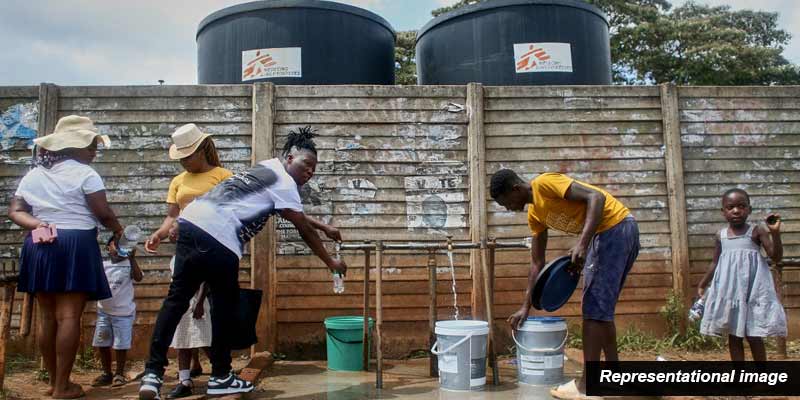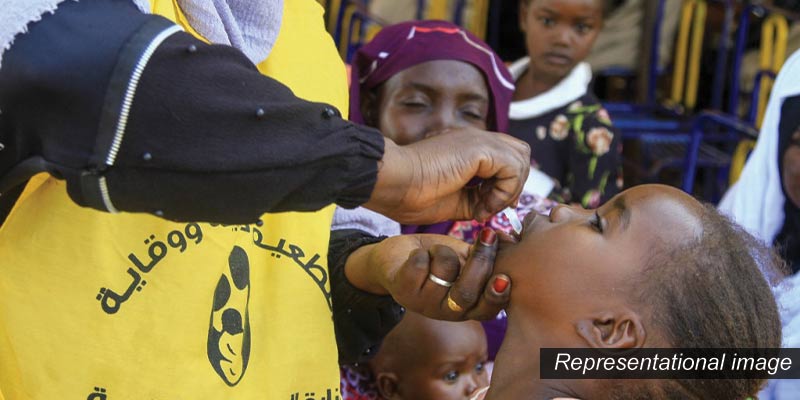- World
- Sep 13
Cholera deaths rise by 50% in 2024
The World Health Organisation’s (WHO) Global Cholera Statistics for 2024 showed an increase in both the number of people who fell sick and died from the disease.
Key points of the report:
• Reported cholera cases rose by 5 per cent and deaths by 50 per cent in 2024 compared to 2023, with more than 6,000 people dying from the disease that is both preventable and treatable.
• While these numbers are themselves alarming, they are underestimates of the true burden of cholera.
• Cholera continues to be a severe public health issue that thrives in fragile settings and disproportionately affects the most vulnerable populations, especially where safe water and sanitation are lacking.
• As many as 60 countries reported cases in 2024, an increase from 45 in 2023. The burden of the disease remained concentrated in Africa, the Middle East, and Asia, which collectively accounted for 98 per cent of all reported cases.
• Conflict, climate change, population displacement, and long-term deficiencies in water, sanitation, and hygiene infrastructure continue to fuel the rise of cholera.
• The scope of cholera outbreaks continued to expand in 2024, with 12 countries each reporting more than 10,000 cases, seven of which experiencing large outbreaks for the first time in the year.
• The resurgence of cholera in Comoros after more than 15 years without reported outbreaks, underscores the persistent threat of global transmission.
• Preliminary data show that the global cholera crisis continues into 2025, with 31 countries reporting outbreaks since the beginning of the year.
Shortage in vaccine supply
• A new, innovative oral cholera vaccine (OCV), Euvichol-S, was pre-qualified in early 2024 and entered the global stockpile.
• Its addition helped to maintain average stockpile levels above the emergency threshold of five million doses for the first six months of 2025.
• However, due to the continued high demand for OCV, the temporary change from a two-dose to a single-dose regimen remained in effect throughout 2024 and into 2025.
• Requests for 61 million OCV doses were made to the global stockpile in 2024, and a record 40 million were approved for emergency use in reactive, single-dose campaigns in 16 countries.
• However, supply constraints continued to outstrip demand in 2024, and into 2025.
Key facts about cholera:
• Cholera is an acute diarrhoeal infection caused by eating or drinking food or water that is contaminated with the bacterium Vibrio cholerae.
• Cholera remains a global threat to public health and is an indicator of inequity and lack of social development.
• Cholera is an extremely serious disease that can cause severe acute watery diarrhoea with severe dehydration.
• It takes between 12 hours and five days for a person to show symptoms after consuming contaminated food or water.
• Cholera affects both children and adults and can kill within hours if untreated.
• Most people infected with Vibrio cholerae do not develop any symptoms, although the bacteria are present in their faeces for 1-10 days after infection. This means the bacteria are shed back into the environment, potentially infecting other people.
• Most people with cholera have mild or moderate diarrhoea and can be treated with oral rehydration solution (ORS). However, the disease can progress rapidly, so starting treatment quickly is vital to save lives. Patients with severe disease need intravenous fluids, ORS and antibiotics.
• Cholera can be endemic or epidemic. A cholera-endemic area is an area where confirmed cholera cases were detected during the last three years with evidence of local transmission (meaning the cases are not imported from elsewhere).
• A cholera outbreak/epidemic can occur in both endemic countries and in countries where cholera does not regularly occur.
• Cholera is often predictable and preventable. It can ultimately be eliminated where access to clean water and sanitation facilities, as well as good hygiene practices, are ensured and sustained for the whole population.
• Measures for the prevention of cholera mostly consist of providing clean water and proper sanitation to populations who do not yet have access to basic services, as well as vaccination with oral cholera vaccines.
• Health education and good food hygiene are also essential.
• Since the creation of the global stockpile in 2013, more than 50 million doses of oral cholera vaccines (OCV) have been successfully used in various settings through mass campaigns.
• While vaccination is an important tool, safe drinking water, sanitation and hygiene remain the only long-term and sustainable solutions to ending cholera outbreaks and preventing future ones.


